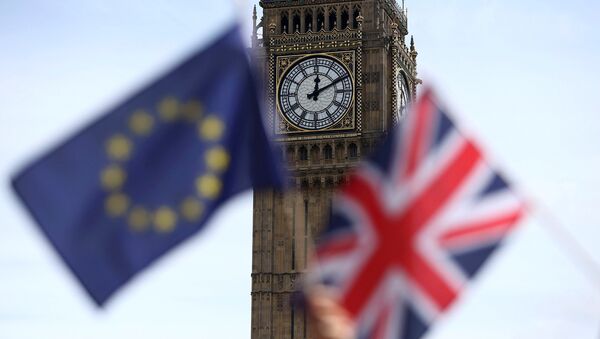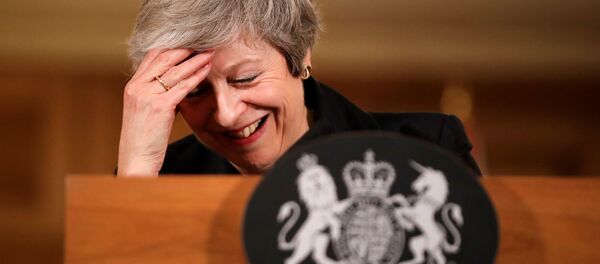Sputnik: The Times has recently reported that some Conservative lawmakers said that they could support Theresa May's deal if she promises to resign in March. In your view, how realistic is this report?
Eleanor Spaventa: At the moment, I think not very realistic; she has indicated that she is not willing to resign. I think that it is conceivable that she could make a backdoor deal so as to make sure that she passes through the withdrawal treaty.
Sputnik: It looks as though these Conservative lawmakers are very much looking after their own concern in that they are happy to support Theresa May with their own desires on a future position for themselves as prime minister; is that your opinion, or what's your feeling about it?
READ MORE: Theresa May Defends Brexit Deal After Trump Casts Doubt on Future of UK-US Trade
Sputnik: What's the viewpoint from an Italian point of view? Obviously, Italy has had problems with the European Union as well. When we discussed Mrs May's Brexit deal with other experts, they said that it's probably got a maximum of 10-15% of support within the House of Commons; it looks as though it's going to be voted down. If that is the case, we're going to be getting into uncharted waters in terms of the way that this political game, and the government, actually moves forward. It's going to be a disastrous period of time; there's going to be a lot of confusion. A lot of people, and the MPs themselves, aren't wanting or don't know in which direction to go. What's the feeling from an Italian perspective in terms of this current mess that the UK is in?
One of the options is that even if it is voted down, they will quite soon have a second vote to see if the response of the markets will persuade some of the MPs to change their minds. And yes, it's totally uncharted territory; what they will do if that is voted down is really difficult to say, because they keep on saying ‘we don't want a no-deal and the Parliament won't allow a no-deal'; but that is not in their power, because Article 50 needs to be extended, it will be the EU unanimously who needs to authorize that.
I think that there's also a bit of confusion in the MPs' narrative about what they really can do or cannot do; because they can vote it down, but then what? There's a real risk that if the EU isn't persuaded that there is a plan, then they might crash out anyway, because it isn't in the power of Westminster to extend Article 50.
READ MORE: UK Won't Revoke Article 50, Which Triggered Brexit Process — May's Spokesman
Eleanor Spaventa: No. It's bad for the EU, but not as bad as it is for the UK. We must remember that the UK is much smaller in economic terms than the EU, so the effects would be disastrous. The EU can keep on trading with itself, but the UK would be isolated by it. It would be very bad if we have a no-deal; it would be very bad both politically and economically. The EU is a much bigger economy, so it would be more resilient.
The UK will have immediate problems; they were talking about even not having drinking water because of the delays in importing the chemicals that you need to have safe drinking water. I think that even if we had a no-deal, I hope there would be some cooperation from the EU to ensure that basic safety problems are overcome, especially with drugs, food. This is really an important part of it, but I think that we have to consider what a no-deal would be, not in the short term, but in the long term; and in the long term it would be very difficult.
The views expressed in this article are those of the speaker and do not necessarily reflect those of Sputnik.




